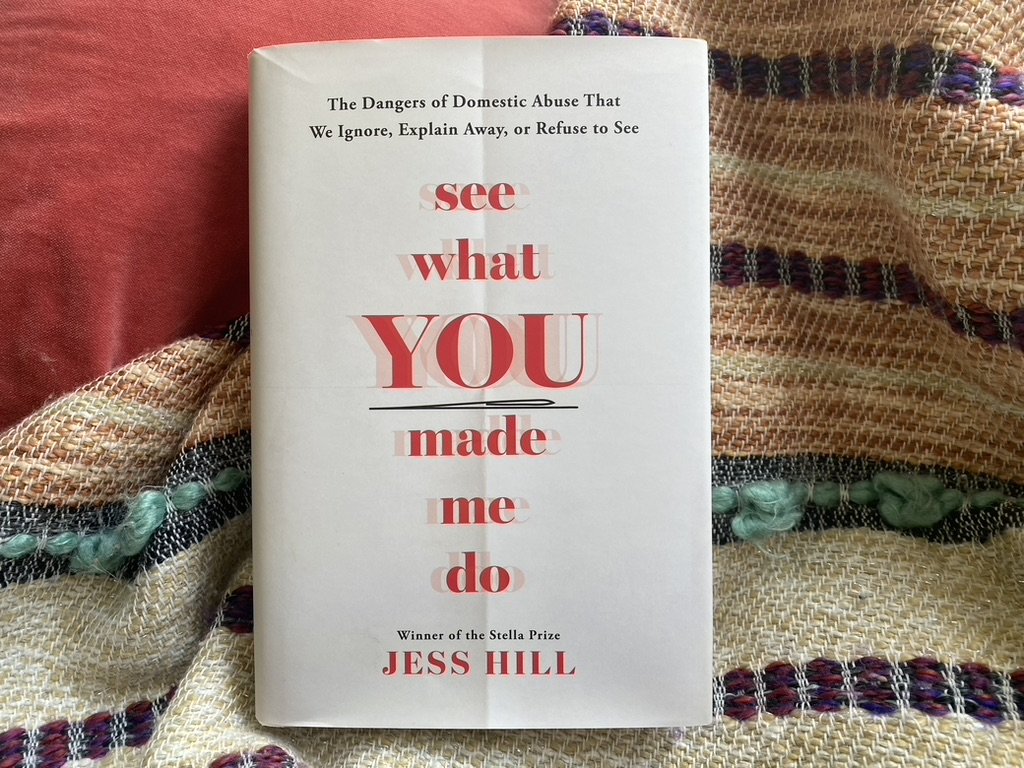Books on My Shelf
-

When Love Hurts
When Love Hurts, by Jill Cory and Karen McAndless-Davis, helps women who have been hurt by their partner make sense of what is happening to them and feel less alone. It is also a helpful resource for family, friends, and professionals who want to know how to support a woman experiencing or recovering from abuse. The accompanying blog posts are a great resource.
-

Why Does He Do That?
Why Does He Do That? Inside the Minds of Angry and Controlling Men, by author Lundy Bancroft, helps women sort out whether their partner’s behaviour is just “normal relationship stuff” or whether he is trying to control you. It is the go-to book for women who have partners who are angry, controlling, or unfaithful, and answers the 20 most common questions women ask about their partner’s behaviour. Available in most libraries.
-

Should I Stay or Should I Go?
In this warm, supportive, and straightforward guide Lundy Bancroft and woman’s advocate JAC Patrissi offer a way for women to practically and realistically take stock of their relationships and move forward. If you wonder if your partner’s behaviour is due to his childhood trauma, mental health issues, addictions, personality or simply his mindset, this book will help you gain clarity.
-

Tangled Web of Words
Dr. Torna Pitman is an essential resource for understanding why and how conversations matter for healthy relationships. Drawing on over two decades of experience as a social worker, practitioner, and researcher. Dr. Pitman explains how different levels of unfair conversational tactics lead to abuse and coercive control. She offers practical strategies to recognize and navigate these dynamics.
-

When Dad Hurts Mom
Counsellor Lundy Bancroft reveals how abusers interact with and manipulate children - and how mothers can help their children recover from the trauma of witnessing and being subjected to abuse.
-

BIFF For CoParent Communication
BIFF For CoParent Communication presents a method for dealing with difficult, hostile or aggressive communication from a coparent. Author Bill Eddy uses the acronym BIFF to represent the communication guidelines of being brief, informative, friendly, and firm.
-

In Control
In Control: Dangerous Relationships and How They End in Murder by criminologist Jane Monckton Smith describes eight identifiable stages in which coercive relationships can escalate to violence. The author also identifies aspects of society and media that allow abuse to thrive.
-

see what YOU made me do
Investigative journalist Jess Hill puts perpetrators - and the systems that enable them - in the spotlight. This book is a deep dive into the abuse so many women and children experience - abuse that is often reinforced by the justice system they trust to protect them. Combining forensic research with riveting storytelling, this book challenges everything you thought you knew about domestic abuse.
-

Coercive Control in Children's and Mother's Lives
Research Emma Katz’ book unravels the questions: How does coercive control-based abusive behaviour work? How does it impact on children’s and mother’s lives? What are the untrue mythos of coercive control that need to be busted? How can we understand survivors better and help them to recover? This is an academic book based on Katz’ own research, but very readable.
-

Coercive Control: How Men Entrap Women In Personal Life
This book by Dr. Evan Stark presents a framework to understand violence against women. It delves into the strategies used to coerce and control women in personal and family life. An academic read.
-

Children of Coercive Control
Dr. Evan Stark extends his path-breaking analysis of interpersonal violence to children, showing that coercive control is the most important cause and context of child abuse and homicide outside a war zone. This book provides a working model of the coercive control of children and illustrates is dynamics and consequences.
-

Sexy But Psycho
Women’s experiences of trauma in the form of intimate partner violence and sexual violence often leads to intersections with mental health systems and medicalization. Psychologist Dr. Jessica Taylor examines the harm women and girls experience through medicalizing their responses to trauma rather than recognizing them as appropriate responses to abuse and oppression.
-

Decolonizing Therapy
Dr. Jennifer Mullan shines a bright and loving light on the core wound of colonialism so that we can being to heal. She calls for an end to the individualistic and pathologizing Eurocentric methods of wellness - one that includes those who have been purposely excluded and historically forgotten. Decolonizing Therapy demands a model of mental health that is accessible to all and that offers a path to liberation and thriving.
-

Indicative Trauma Impact Manual
Clinical Psychologist Dr. Jessica Taylor has created a ground-breaking non-diagnostic, trauma-informed guide to emotion, thought, and behaviour. Rather than lists of disorders and medicalised symptoms, this extensive manual provides information about hundreds of trauma responses, emotions, thoughts, behaviours and experiences that have previously been categorised as illnesses and disorders.
